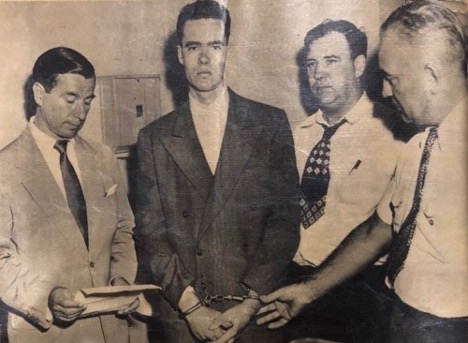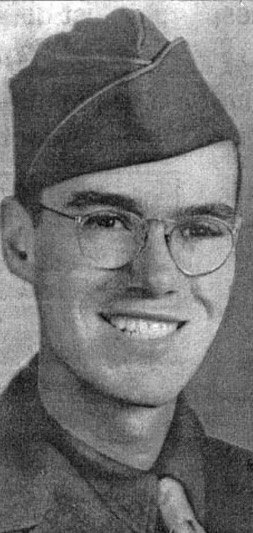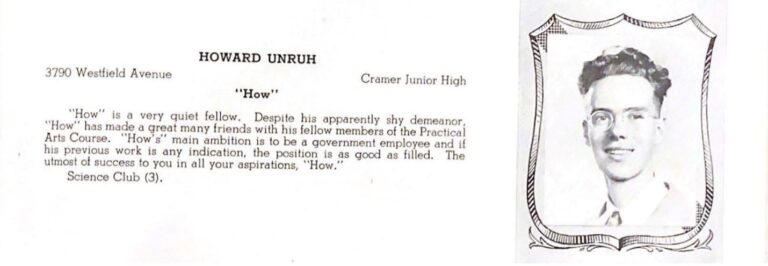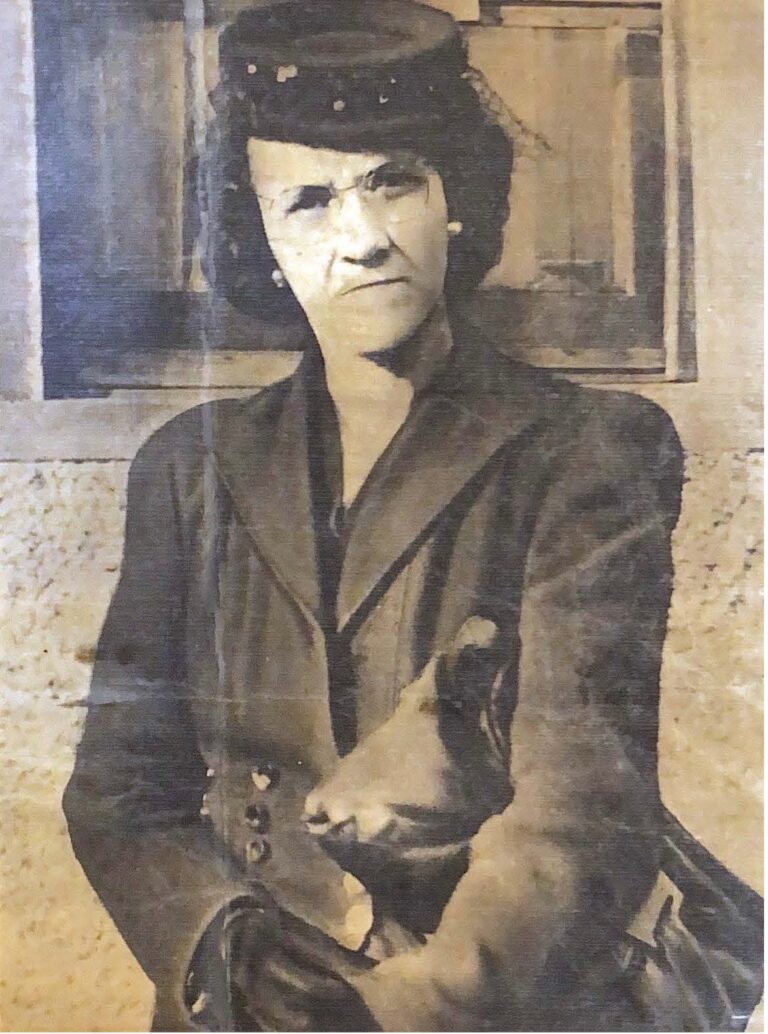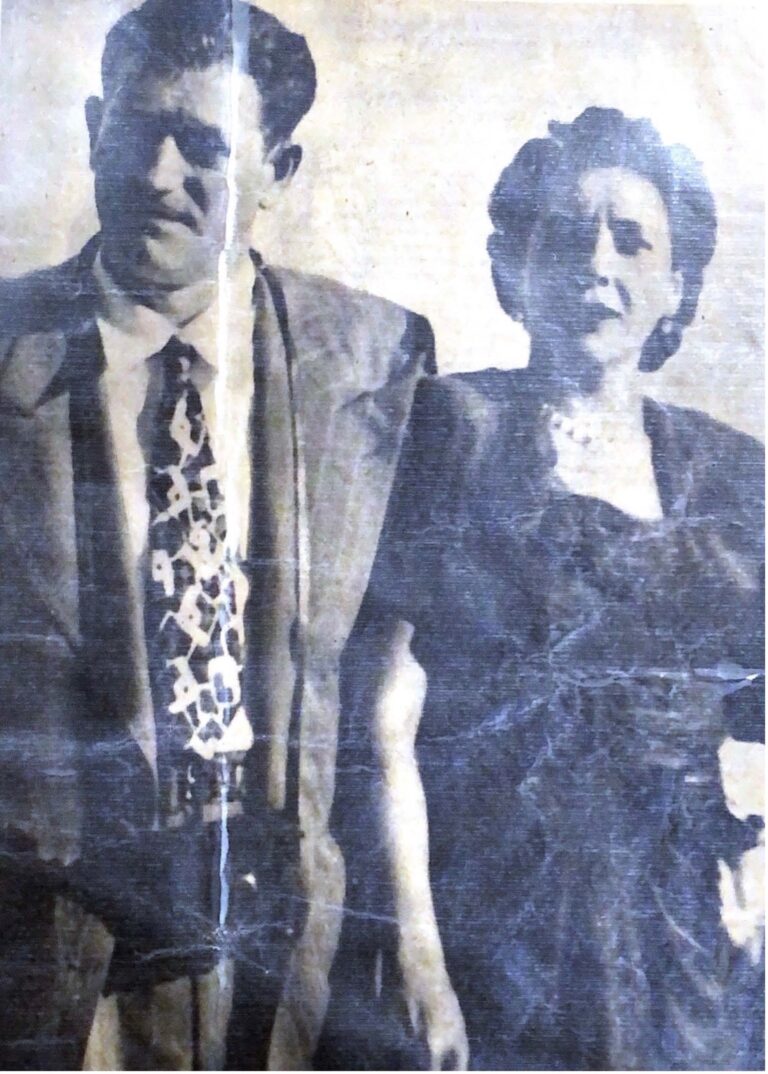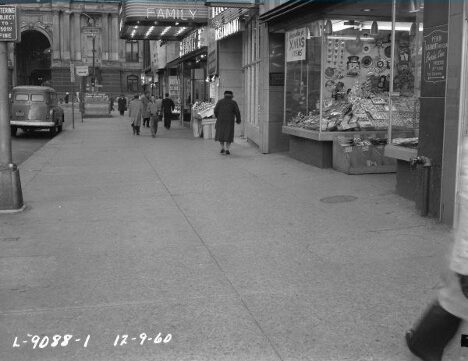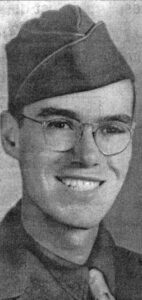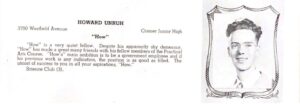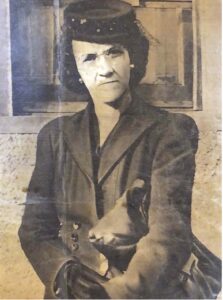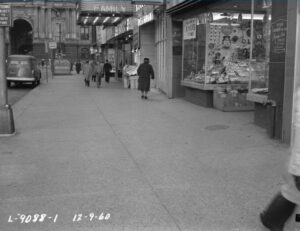Mass Shooting (Camden 1949)
By Matt Fulton
Essay
On September 6, 1949, Howard Barton Unruh (1921-2009), a 28-year-old World War II veteran, murdered thirteen people in twelve minutes along the 3200 block of River Road in Cramer Hill, a working-class neighborhood of Camden, New Jersey. Dubbed the “Walk of Death” by the press at the time, the shooting stunned Camden and attracted widespread news coverage and notoriety.
This “spree killing,” which is a killing of three or more unrelated individuals without a cooling-off period, has been widely attributed as the United States’ first mass shooting. However, earlier incidents, such as a 1903 shooting in Winfield, Kansas, in which nine were killed and twelve injured, and various historical racially motivated acts of violence against Native Americans and enslaved Africans also meet the standards of a mass shooting. Nevertheless, news media outlets have often listed Unruh’s shooting as the first because it was the first to attract widespread news coverage.
In his confession to the crime, Unruh cited deteriorating relationships with his neighbors as a motive, claiming that he resented their “derogatory remarks about [his] character.” He also insinuated that neighborhood boys had mocked him for being homosexual and carrying on relationships with men in Philadelphia. The night before the shooting, when Unruh returned home to Camden late after seeing a movie, he found that someone had ripped out a gate he and his father, Samuel Unruh (1893-1953), had built as a shortcut out of their yard at 3202 River Road. He concluded this had been done by his next-door neighbor, Maurice Cohen (1910-49).
The following morning, after eating breakfast, Unruh allegedly threatened his mother, Frieda Unruh (1898-1985), with a wrench before she ran up the street in distress to a friend’s home. At 9:30 a.m., he left through the back door armed with a 9-millimeter Luger P08 pistol and cut through an alley to enter the shoe repair shop of John Pilarchik (1922-49). Walking up to the counter, Unruh shot Pilarchik through the head and chest. Turning left, Unruh went to the adjacent barbershop owned by Clark Hoover (1916-49) and with a single shot killed Hoover and Orris Smith (1943-49), a 6-year-old boy getting a haircut before he was due to start first grade the following day.
A Son, Hidden, Survives
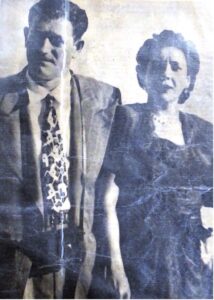
Unruh continued to the pharmacy owned by his neighbors, the Cohens, on the corner of River Road and Thirty-Second Street. As he approached, he encountered an insurance salesman, James Hutton (1904-49), and shot him at point-blank range when he did not move out of the way fast enough. Leaving Hutton’s body in the doorway, Unruh pursued Maurice Cohen upstairs to his second-floor apartment. Cohen tried to escape through a window onto the roof, but Unruh shot at him twice, causing Cohen to fall onto Thirty-Second Street, where he died. Unruh also murdered Cohen’s wife, Rose (1911-49), who managed to hide her 12-year-old son, Charles (1937-2009), in a closet. Unruh then shot Maurice Cohen’s mother, Minnie (1886-1949), as she tried to call the police from a bedroom.
Crossing River Road, he tried to enter the American Store grocery market, but after finding the door locked he spotted a gray Nash coupe pulling to the curb outside the Cohen’s pharmacy and shot the driver, Alvin Day (1925-49), an RCA television repairman. He then moved up the street and entered a tavern owned by Frank Engel (1910-83), but he found the bar empty and fired into the front window of an apartment at 3208 River Road, killing 2-year-old Thomas Hamilton (1947-49) before turning his attention to a tailor shop owned by Thomas Zegrino (1911-93). In the shop’s back room, Unruh found Zegrino’s wife, Helga (1921-49), a schoolteacher, shot her once, then attempted to break into the neighboring delicatessen and luncheonette.
Finally, Unruh encountered a blue Chevrolet coupe stopped at River Road’s intersection with Thirty-Second Street. Unruh fired once at the driver, Helen Wilson (1912-49), and missed but hit her 9-year-old son John (1940-49) in the neck. He fired again, striking Helen and her mother, Emma Matlack (1881-1949). Moving back through the alley, Unruh entered a home at 942 N. Thirty-Second Street, where he wounded Madeline Harrie (1912-2003) and attempted to murder her 16-year-old son, Armand (1933-2003) but ran out of ammunition. Unruh pistol-whipped Armand and retreated to his apartment at 9:42 a.m.—the whole ordeal unfolding over just twelve minutes.
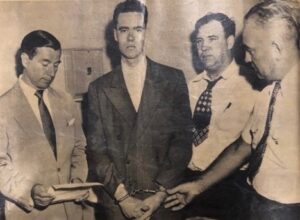
Unruh later surrendered after a standoff with the police. Prosecutors brought charges for thirteen counts of “willful and malicious slayings with malice aforethought” and three counts of “atrocious assault and battery.” However, Unruh was diagnosed with paranoid schizophrenia and deemed incompetent to stand trial. He was confined to the maximum-security Vroom Building at the Trenton State Hospital for the next sixty years until his death at age 88 on October 19, 2009. The mass shooting has continued to be a touchstone for media commentaries on contemporary instances of spree killings in the United States.
Matt Fulton is an independent writer, filmmaker, and an English graduate student at Rutgers University—Camden. He is the author of a series of spy novels, two short horror films, and The Walk, a one-act play dramatizing the story of Howard Unruh and the Camden mass shooting. (Author information current at date of publication.)
Copyright 2022, Rutgers University.
Gallery
Backgrounders
Connecting Headlines with History
